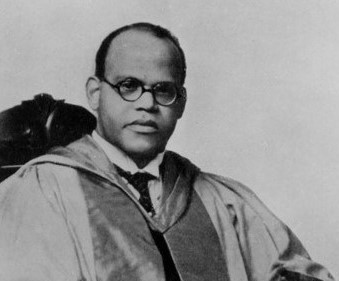
Dr Harold Moody
Kennedy Assoumou talks about the life of Dr Harold Moody and his importance to black British history.
Dr Harold Moody, do you know him?
No? I didn’t either until a month ago thanks to Google Doodle. A black man celebrated, I naturally took interest and soon my curiosity was overwhelmed at the brilliance of this man and his importance to black British history.
Dr Harold Moody was born in Jamaica’s capital Kingston in 1882 on October 8. Born into an upper-class family, Harold Arundel Moody’s upbringing was surrounded by discipline and faith which rooted him into the man and pioneer he would one day become. Showing intellectual promise and influenced by his early exposure to medicine through his father’s pharmaceutical business, he would go on to study medicine abroad in London at King’s College.
Facing adversity
Arriving on 1 September 1904 (the date celebrated by Google), the then Harold Moody only knew of the United Kingdom from what he taught in books, school, and those around him. He was an anglophile, but he was not prepared for the racism he would face once he stepped off that ship. It was not uncommon for colonial students to face. Although, what was bizarre was that a great empire such as Britain founded on Christian values and teach the religion to their colonies failed to the fundamental rule: equality for all. The colonial students would only have had experience speaking to those who shared the same skin and those whose skin carried a different colour they were taught to look at them no different, at least in Moody’s case.
This was the first of many times Moody would face adversity in his life. Upon completing his studies Dr Moody, although a brilliant doctor, was told he would be unsuccessful in his profession because people didn’t want to be served by a black man. However, the doctor was not discouraged. He could have gone back to Jamaica and had a successful career there, but he felt it was his vocation to stay in London and serve the people here.
Breaking stereotypes
The doctor would go on to break stereotypes; the first, that black people were not “savages” or incapable of literacy or maths. He demonstrated this being extremely well-spoken, being well dressed, and being well mannered. The second was that he wouldn’t have a successful career as a doctor but he would become the local doctor known to and visited by all – both black and white. Another accolade was that he was one of the first doctors on the scene of the major bombings in London during the Second World War. A war hero. The next, and probably his most memorable was starting the League of Coloured People (LCP). There were doubts if this society would be successful because, as mentioned earlier, it was believed black and other ethnic people were illiterate thus incapable of organising themselves.
The LCP was established in 1931 by the doctor with the objectives to:
- promote and protect the social, economical, educational, and political interests of its members
- interest members in the welfare of coloured people in all parts of the world
- improve relations between races
- co-operate and affiliate with organisations sympathetic to coloured people
- render such financial assistance to coloured people in distress as lies within our capacity
During its time, the LCP’s primary focus was the removal colour bar, this was a restriction placed on people of colour which would limit their workplace mobility, affect their social life and restrict their housing ability. The LCP would also highlight the injustices being committed to the Jews in Germany.
Honouring his legacy
Unfortunately, in 1964 Dr Moody died of influenza a year before the Windrush, a time where his leadership and presence was (arguably) needed the most in the League’s duration. Thankfully, the LCP didn’t end, but there was a void left behind. The LCP would go on for another 6 years managed by his children and it would become one of the most successful longest-running campaign organisation in Black British history. Inspiring people such as myself to do more to educate myself about the blights suffered by not just black people but all people. To promote and protect the social, economical, educational, and political interests of those around me. And to improve relations between all races.
The best way we can honour his memory is to live by the values he did, carrying ourselves with purpose, respect, and to always fight for equality and to improve the lives of those around you. You cannot play the piano unless you play with both the white and black keys.




